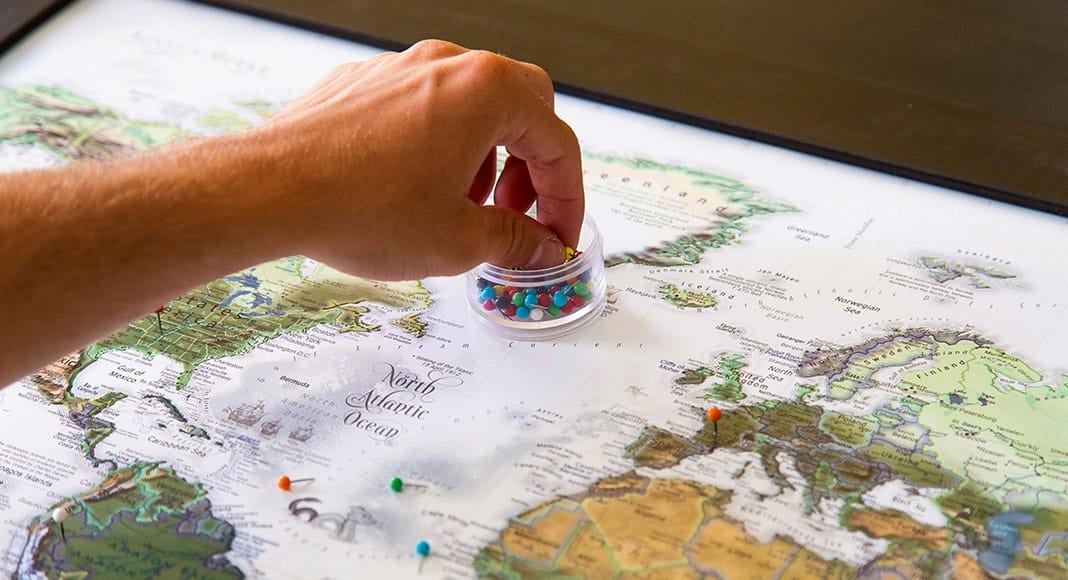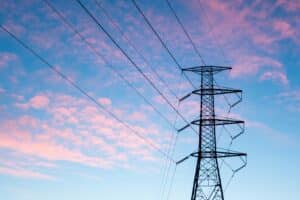For me, one of YouTube’s most love-hate Portugal-promoting influencers is ‘Dave in Portugal’, who recently posed the question: “Are Americans returning back to Europe?”, which quite honestly confused me but later had me thinking deeply about its greater geo-political and sociological impact.
Firstly, and to clear up on the matter of seeming at all snooty about social media commentators, I have to say – with a glaring awareness of the irony here – that people promoting Portugal online have to work hard to inspire and impress me. Clickbaity and over-selling titles, combined with shocking or contrived images, and clunky, sponsored product placement is a real turn-off, when what I crave most is authenticity and simplicity.
YouTube is, of course, essentially a free service. So whilst the medium remains the message, that medium also has to pay the piper somehow. People like ‘Dave in Portugal’ grabbing at our eyeballs, and navigating the best-paying commercial formula, whether we want a VPN or not, is, I suppose, the price we pay for their effort, insight and experience. And I really shouldn’t be so persnickety about it, especially whilst living in that same glasshouse myself.
So, let’s get back to Dave, who I think still lives here, despite his attention-seeking “The Portugal Dream is DEAD” and “Am I leaving?” episodes, and his latest dabble with Portuguese delight and doubt, done as ever with the greatest of production values.
“For centuries, Europe sent waves of people to the United States,” begins Dave. “They were chasing opportunity, freedom and the so-called American Dream. But today something surprising is happening. Americans are packing their bags, crossing the Atlantic and moving back to the old Promised Land – Europe.”
“But why? And what does this mean for the future? Is there a reverse migration happening?”, he continues, which really got me cogitating. For sure, the pandemic period saw an uptick in American awareness and interest in Portugal. And the re-election of President Donald Trump has caused another surge of interest, as many a Portuguese real estate agent will attest. But what Dave is talking about is not merely the trading of places based on economic advantage, improved quality of life or political upset; he seems to be talking about a deeper, maybe even spiritual motivation – an ancestral homecoming.
“You see, for over 200 years, the story of migration was about leaving Europe to make it in America,” he adds, “but now the tables have turned. Today, tens of thousands of Americans are leaving behind their lives in the US and resettling in places like Portugal, Spain and Italy.”
When you look at it like this, the more material migratory drivers seem only superficially significant, as Americans with Dutch, English, German or Irish roots might be eschewing what was once the “promised land” of their forefathers and coming ‘back’, in quite a profound way.
Their ancestors began to ‘go west’ around 400 years ago, and continued in large numbers until the last century, seeking better prospects or escaping political and religious persecution. That’s approximately 12 generations, tops, who have arguably made what the United States of America is today, which once more finds itself at a new cultural crossroads, or simmering melting pot, in stark and general terms.
Where Ronald Reagan once said: “You can go to live in France, but you cannot become a Frenchman. You can go to live in Germany or Turkey or Japan, but you cannot become a German, a Turk, or a Japanese. But anyone, from any corner of the Earth, can come to live in America and become an American.”
The next US President is promising the “largest deportation operation in American history”. And with South American and Asian immigrants topping the modern-day migration charts, the European-American epoch may well be giving way to a new order and ethnic make-up, against the backdrop of the Trump deportation of 1.5 million people in his first term; and a threatened one million a year, from hereon in.
Reagan believed his premise to be “one of the most important sources of America’s greatness.” He also asserted that “we lead the world because, unique among nations, we draw our people, our strength, from every country and every corner of the world. And by doing so, we continuously renew and enrich our nation.”
This is an undeniable formula on many levels, which presumably brings with it, in the less idealistic eyes and minds of others, the concept of “poisoning the blood” of the country that Trump feels obliged to address, as the quality vs quantity and patriotism vs racism debates rage. But what of Europeans specifically? And are they heading ‘home’ in the deepest, ancestral sense as other continents pick up and run with the baton of America’s future.
The more I have tried to make sense of this in my own mind, the more questions it has raised for me about migration, national identity and how the future of humanity might look, in the various nation states I have grown up with and have formed hitherto unquestionable ideas about.
I appreciate, too, the contradiction of how important, in one sense, ethnicity can be and yet how superficial and irrelevant it could also be, should our fears and prejudices ever be overwhelmed by cooperation and understanding.
Bringing my philosophising back down to earth, the US’s Migration Policy Institute says “Europeans comprised 10%, or slightly more than 4.7 million, of the 46.2 million immigrants living in the United States in 2022, according to the most recent U.S. Census Bureau data.
“Europeans represent the third-largest region-origin immigrant group after those from the Americas (52%) and Asia (31%),” they add, which makes (the United States of) America’s consequential quota of immigrants not too dissimilar to Portugal’s, in percentage terms. How each country’s migrant populations will impact their new homes remains to be seen, of course, and will no doubt remain the source of media controversy, social concern and political debate.
And as the USA’s European migrant population diminishes in favour of other elements in its national chemistry set, might we see here an even greater number of Americans coming not only to Portugal but to Europe generally, who on a personal basis are excitedly tracing their ancestral roots, but in a wider sense completing a grand historical arc, a homecoming, a resolution, that no one would have imagined, apart from Dave?
By Carl Munson
Carl Munson is host of the Good Morning Portugal! show every weekday on YouTube and creator of www.learnaboutportugal.com, where you can learn something new about Portugal every day!





















